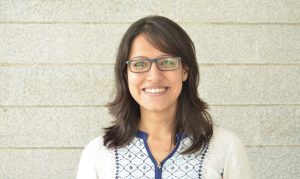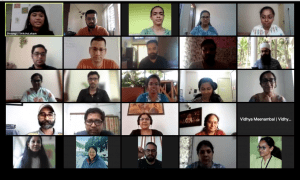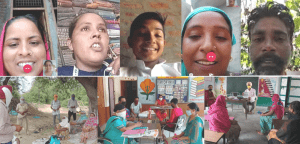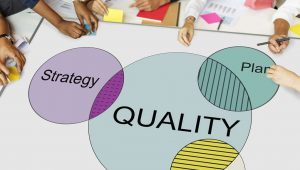Lao Tzu, Richard Bach and enabling
Leadership in Education
Distributing solutions vs Distributing the ability to solve
“ “Give a man a fish and you feed him for a day. Teach him how to fish and you feed him for a lifetime.”
Have you heard this before? It is a famous quote from the Chinese philosopher Lao Tzu, founder of Taoism and I bet, you’d have seen it scribbled on the blackboards in the schools as a profound ‘Thought for the Day’.
What if I asked you, do you resonate with this quotation..! In all likelihood, your immediate response would be a yes. To me, this has strong relevance for people like us working in the development sector. It builds a perfect case for distributing the ability to solve – teaching how to fish – versus distributing the solutions – the fish. Consider these two examples.
- A teacher wants to make her classes interactive. As a program designer, I have two options. I can give her the ready-made lesson plans and related teaching learning materials. Or I can work on building her capacity on how to design lesson plans and how to make interesting teaching learning materials with readily available resources.
- A school principal wants to improve reading habits among children in her school. As a program designer, I can choose to either set up the library and hand over the manual to the principal to run the space. Or I can work on enabling the principal to set up a school team and on supporting the team in identifying and implementing the best idea, which may or may not be the setup of a library.
As you’d have guessed, one scenario in each of the examples is about distributing ready solutions and the other is about distributing the ability to solve.
When I want someone to use my solution, I make an implicit assumption that I know the best. Unfortunately, societal challenges like education, healthcare, livelihood etc. are – by nature – complex, dynamic and diverse. Context plays an important role.
” Even if my solution is really the best in one context, it may be a terrible misfit in another. When I recognise this fact and humbly accept that you understand your context better, and so you can design better solutions than me, I feel inclined to invest my efforts in enabling your ability to solve. I become ready to let go of my temptation to give you the proverbial ‘fish’; instead I ‘teach you how to fish’.
At our work in ShikshaLokam – an education leadership development mission – we strongly believe in distributing solvability, i.e. in enhancing capabilities of leaders, government officials and partner organisations in the ecosystem so that they innovate and respond with contextual solutions quickly.
At the core of our work is one fundamental design question – how might we enable education leaders to continuously sense (what’s happening around me), make sense (what’s good and what needs to improve), learn (what do I need to know to lead improvement) and improve (what do I do to lead improvement), in their context. A leader will always face ambiguity and newness of challenges. Yesterday, challenges were due to perception of public schools, today it’s due to Covid-19, tomorrow it would be something else. There cannot be one solution – one silver bullet. Developing the education leaders’ ability to solve, thus builds greater resilience in the system because they will continue to identify and plan their series of micro, yet ‘relevant’ improvements.
Engaging in this continuous cycle will build one’s muscle to improve on one hand; and on another, it improves the belief that ‘I can drive change’, ‘I can make good decisions’. Thus, this contributes to restoring the sense of agency among the education leaders. We’d have thus triggered a self-sustaining and virtuous cycle of change in the education system. We’d have catalysed an infectious emotion similar to what ‘Jonathan Seagull’ feels, when he exclaims delightfully in the famous book by Richard Bach, “We can lift ourselves out of ignorance, we can find ourselves as creatures of excellence and intelligence and skill. We can be free! We can learn to fly!”
P.S. Is having the ability to solve sufficient? Are there barriers in the real world that prevent one from applying this ability in action? What if there are no fishes in the riverstream which is accessible to the man? Or worse still, the access to riverstream is denied? Is there a possibility that the man won’t have motivation to fish? I will explore these questions on unequal power dynamics, challenge of access and motivation in my follow up article. Are there other questions on your mind?
Tags
Meet the Author

Khushboo Awashi
A management professional turned education enthusiast, Khushboo is the Co-Founder & Chief Operating Officer of ShikshaLokam - an education leadership catalyst and Mantra4Change, a non-profit driving systemic public schools transformation in the Indian education system. With 13+ years of diverse experience in education and healthcare domain she is recipient of Women Transforming India Awards 2021 instituted by NITI Aayog, a Schwab Social Innovator of the Year 2023 and is part of BW Education 40 Under 40 Power List 2022. Khushboo is a travel enthusiast, a curious learner and an avid reader. Her interests lie in exploring concepts of agency, networks, large scale social movements and societal role of technology in encouraging co-creation and collaboration.

Khushboo Awashi
A management professional turned education enthusiast, Khushboo is the Co-Founder & Chief Operating Officer of ShikshaLokam - an education leadership catalyst and Mantra4Change, a non-profit driving systemic public schools transformation in the Indian education system. With 13+ years of diverse experience in education and healthcare domain she is recipient of Women Transforming India Awards 2021 instituted by NITI Aayog, a Schwab Social Innovator of the Year 2023 and is part of BW Education 40 Under 40 Power List 2022. Khushboo is a travel enthusiast, a curious learner and an avid reader. Her interests lie in exploring concepts of agency, networks, large scale social movements and societal role of technology in encouraging co-creation and collaboration.



